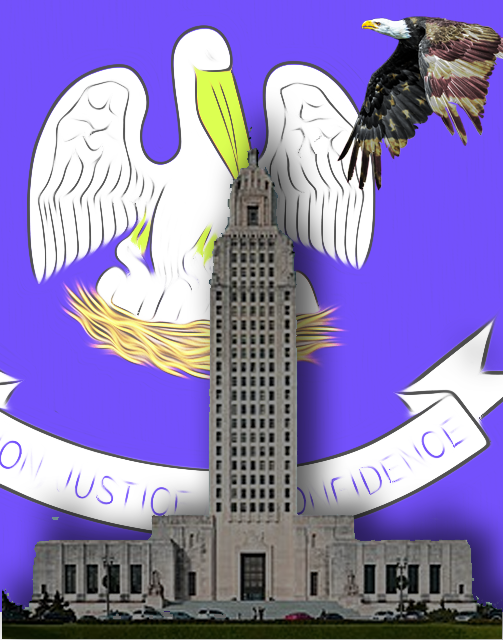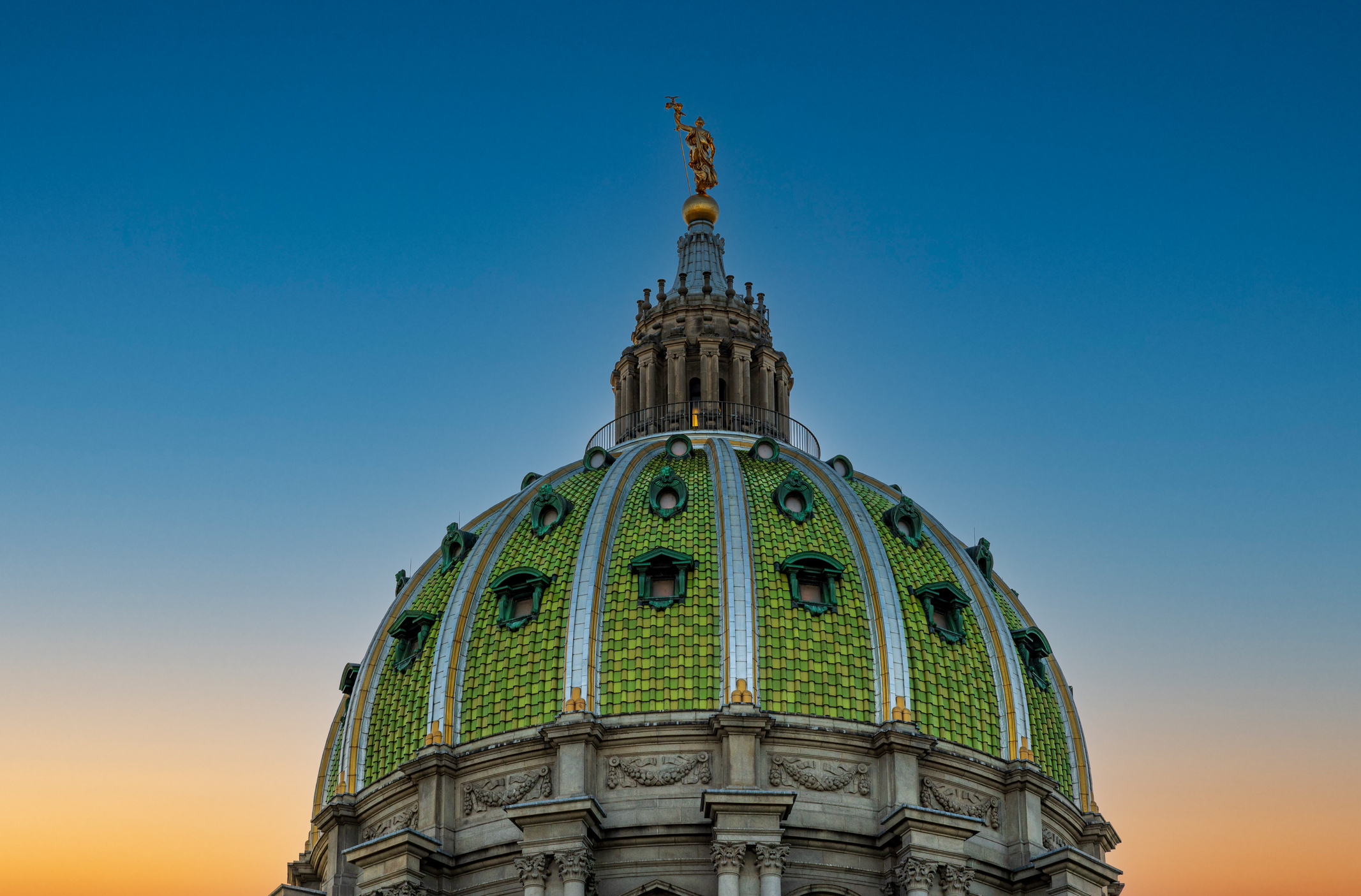DMGS Article Highlights
- Earlier this year, DMGS took an in-depth look at Nevada’s two special sessions that convened this past summer.
- Like Nevada, Louisiana has also convened two special sessions this year.
- Louisiana’s second special session is currently ongoing.
Refresh: What is a Special Session?

Unlike a regular legislative session, legislatures hold special sessions to deal with specific issues or topics, limiting the session’s scope to these issues. Each state has its own rules and laws for special session procedures, including how they are initiated. In 14 states, only the Governor can call for a special session. Meanwhile, either a state’s Governor or legislature can call a special session in the other 36 states.
2020 has seen an increase in special legislative sessions. At the time of this writing, lawmakers in seven states have convened in a special session. The COVID-19 pandemic, and the federal government’s failure to respond adequately, has required state lawmakers to change how they operate, which DMGS covered earlier this year. The coronavirus spread has changed state legislatures’ timing, and lawmakers have called for special sessions due to timing issues. COVID-19 has also significantly affected many other issues, including budget shortfalls, liability protections, and unemployment issues. As a result, states have called lawmakers into special sessions to address these issues.
Second Extraordinary Session Outlook and Update
On September 21, 2020, Louisiana Speaker of the House Clay Schexnayder and Senate President Patrick Page Cortez formally called the Legislature into its second extraordinary, or special, session. Lawmakers began the session on September 28 and scheduled the session for thirty days, ending October 27. Because lawmakers called themselves into a session, Governor John Bel Edwards could not set the agenda or have any input.
The session focuses on Hurricane Laura disaster relief and recovery efforts, ongoing COVID-19 issues, and the state’s unemployment fund. While the unemployment fund and Hurricane Laura appear to be the key issues, a political “tug-of-war” may continue to ensue between Republican lawmakers and Democratic Governor John Bel Edwards over orders to contain the spread of COVID-19, which has now infected 170,000 and killed 5,592 Louisianans. Some expect that lawmakers could introduce dozens or even hundreds of bills in the special session because of the session agenda’s broad scope.
The state’s unemployment trust fund was previously $1 billion but has fallen to $49.4 million amid skyrocketing claims. The unemployment rate in Louisiana reached 15% in the spring, dropping to 7.6% in August. Even though the Louisiana weekly unemployment payment maxes out at $247, one of the nation’s lowest, the fund is still distributing $35 million per week. As a point of reference, the state would have needed a fund of over $4 billion to sustain the maximum weekly unemployment payments for six months of 15% unemployment. The fund will undoubtedly run out, and lawmakers must borrow money from the federal government unless they can develop another solution. The unmitigated damage from Hurricane Laura has also dealt a financial blow to the state to the tune of $12 billion.
A proclamation by legislative leaders listed 70 agenda items. Lawmakers can file and consider bills on these items. The agenda items include, but are not limited to:
- To legislative relative to legislative procedures, powers, duties, and authority under the Louisiana Health Emergency Powers Act and the Louisiana Homeland Security and Emergency Assistance and Disaster Act;
- To legislate relative to the power and authority of executive branch officers and agencies under the Louisiana Health Emergency Powers Act and the Louisiana Homeland Security and Emergency Assistance and Disaster Act;
- To legislate relative to voting and the holding of elections impaired as the result of a declared emergency or disaster;
- To legislate relative to establishing a special statewide election date to submit proposed constitutional amendments to the electors of the state;
- To legislate relative to the use of the Budget Stabilization Fund and the Unemployment Trust Fund;
- To authorize the state to incur debt or issue bonds to provide relief from a natural disaster or declared emergency or disaster;
- To legislate relative to making supplemental appropriations and reductions for the ordinary operating expenses of state government for the Fiscal Year 2020-21;
- To legislate relative to appropriating federal funds received from the CARES Act;
- To legislate relative to the Main Street Recovery Program, the Frontline Worker and COVID-19 Hazard Pay Rebate Program, and local government Coronavirus Relief funding;
- To legislate relative to federal funds received in response to declared states of emergency and disaster;
- To legislate relative to public health emergencies;
- To legislate relative to administrative procedure and rulemaking during a declared state of emergency or disaster;
- To legislate relative to testing, treatment, and prevention of COVID-19;
- To legislate regarding housing and rental assistance in response to a declared emergency or disaster; and
- To legislate relative to evictions during a declared emergency or disaster.
House and Senate lawmakers have been working on numerous bills. House lawmakers adopted HCR9, which the Senate is considering. Current law authorizes the Governor to declare and renew emergencies and public health emergencies, but HCR9 would suspend the current law only as it applies to the COVID-19 pandemic. Similarly, HB60 would provide that no public health emergency could continue for longer than 30 days unless authorized by the legislature. The bill would also establish a balloting procedure where the legislature may authorize the Governor to renew such an emergency. The House passed the bill, which is awaiting the Senate’s consideration. Another COVID-related resolution, HCR13, would prohibit the state fire marshal from enforcing certain COVID-19 business restrictions. The House scheduled floor debate on the bill for October 12.
Another bill, HB 38, would require public colleges, universities, governing authorities with a municipal police department or sheriff’s office to submit a report of the annual operating budgets for the campus or municipal police department for the current and ensuing fiscal years to the Joint Legislative Committee on the Budget (JLCB) by November 30 of each year. If the report shows a decrease of 10% or more from the current to next year, the JLCB could require a college/university or governing authority to appear before them. Further, if the JLCB determines the reductions will have a significant and harmful effect on public safety, they shall be ineligible to apply for or receive funding for any new capital outlay project. Further, any governing authority would not receive appropriations from sales tax dedications in the next fiscal year. The bill is scheduled for floor debate in the House on Monday. The bill’s sponsor has tacitly admitted that the bill is a solution searching for a problem, noting that no local government in the state is proposing any public safety budget reductions. One lawmaker called it “political posturing by a congressional candidate.”
Governor John Bel Edwards released a statement the same day that the House Speaker and Senate President issued their proclamation, expressing concerns with lawmakers convening for a second special session. The Governor noted that the current session is occurring when the public is restricted in their access to the State Capitol and limited in their ability to provide public input on legislation. The Governor also noted the extensive list of items on the agenda and expressed hope that Legislative leaders would narrow the session’s scope and duration.
First Extraordinary Session Recap
House Speaker Schexnayder and Senate President Cortez called lawmakers into 2020’s first extraordinary session, also lasting thirty days, from June 1 through June 30. The proclamation calling lawmakers into a special session enumerated forty-one items. The Legislature passed and the Governor signed thirty-eight bills into law, vetoing one bill and line-item vetoing three.
Some of the bills included:
- HB1 – appropriated $34.8 billion for FY 2020-21. The Governor made numerous line-item vetoes to the bill.
- HB19 – expands eligibility for participation in the Quality Jobs Program to COVID-19 impacted businesses with no greater than 50 employees. The Program is existing and allows eligible businesses to enter into contracts with the Board of Commerce and Industry to receive payroll, sales & use tax, or project facility expense tax rebates to create specific jobs or promote other economic development.
- HB57 – creates the Civil Justice Reform Act of 2020. The bill reduces the threshold for the right to trial by jury to $10,000 from $50,000. Existing law provides that although a policy of insurance may be admissible in court, the amount of coverage under the policy shall not be communicated to the jury unless the amount of coverage is a disputed issue that the jury will decide. HB57 provides that insurer identities will not be communicated to the jury unless the insurer’s identity would be admissible to attack a witness’s credibility and provides that in all cases brought against an insurer, at the opening and closing of the trial, the court shall read instructions to the jury that there is insurance coverage for the damages claimed by the plaintiff. The bill also repeals the previous law, which provided that the failure to wear a safety belt in violation of existing law was prohibited from being admitted to mitigate damages in any action to recover damages arising out of the ownership, standard maintenance, or operation of a motor vehicle, and the failure to wear a safety belt in violation of existing law was prohibited from being considered evidence of comparative negligence.
- HB59 – provides for immunity for public, non-public, and charter schools from civil liability from damages resulting from exposure to COVID-19 or acts undertaken to respond to the COVID-19 public health emergency.
- HB62 – provides that if a claimant is eligible to receive any temporary federal emergency increase in unemployment compensation benefits in addition to the maximum weekly benefit amounts, then they shall withhold state income taxes at a rate of four percent.
- HB70 – establishes a one-time hazard pay rebate of $250 for essential critical infrastructure workers whose adjusted gross income is $50,000 or less.
Latest News
Photo credit: iStock.com/24K-Production Across the United States, lawmakers are increasingly reconsidering psilocybin policy in response to growing evidence of its therapeutic potential. Psilocybin is a naturally occurring psychedelic compound found in particular species of mushrooms. [...]
Photo credit: iStock.com/sommart In 2025, state governments across the U.S. are advancing initiatives to improve administrative efficiency and modernize civil service, adopting tailored strategies to better serve residents. Recognizing the importance of adaptability, innovation, and [...]
Photo credit: iStock.com/BackyardProduction Governor Josh Shapiro delivered his 2025-26 budget address, outlining economic initiatives, public safety measures, infrastructure improvements, and education funding. His speech emphasized continued investment in key sectors to strengthen Pennsylvania’s [...]
Photo credit: iStock.com/Motortion In 2022, the U.S. Supreme Court decision in Dobbs v. Jackson Women's Health Organization overruled a federal constitutional guarantee of freedom to abortion. Since then, legislation concerning reproductive healthcare—including access to [...]






Stay In Touch